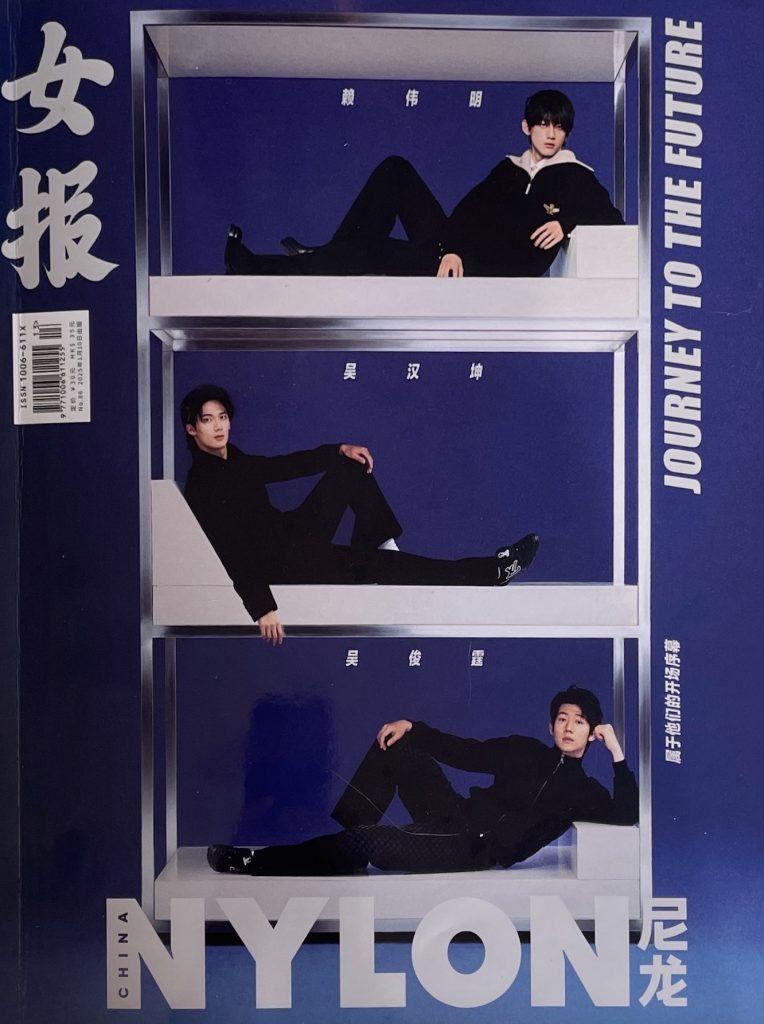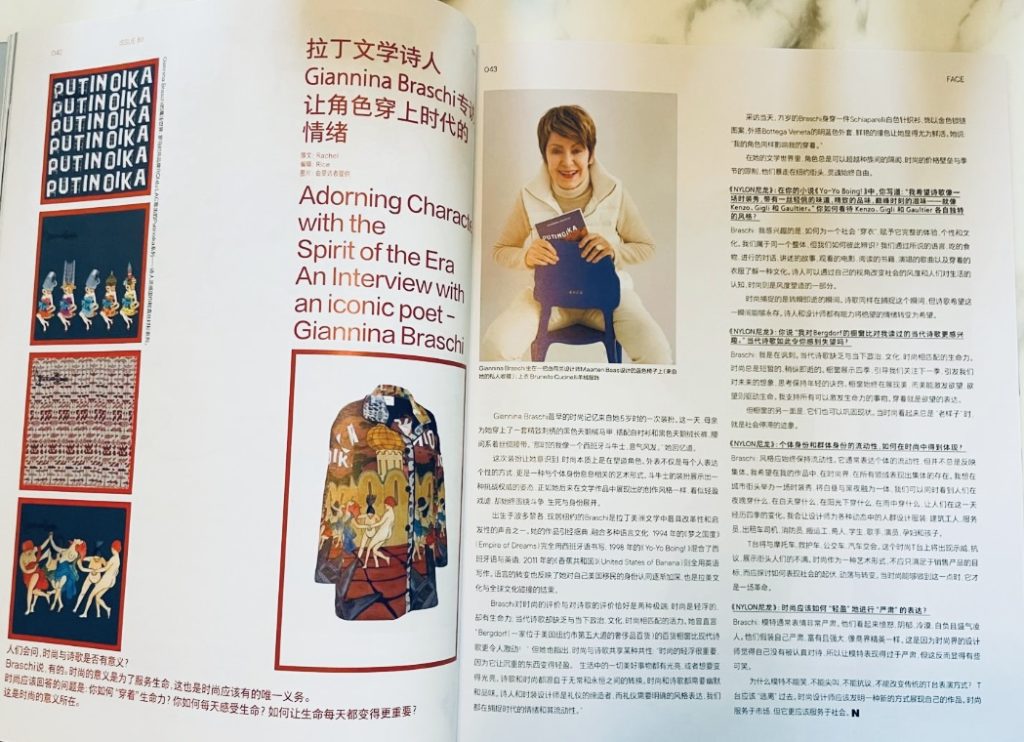Nylon China interviews iconic poet Giannina Braschi on fashion and poetry.

Nylon China Fashion and Poetry Quotes
Adorning Characters in the Spirit of the Era: An interview with iconic poet Giannina Braschi
Here are three fashion and poetry quotes from the interview…
1
“Fashion became an event when the god Hephaestus fashioned the Shield of Achilles in Homer’s Iliad and when the god Vulcan fashioned the Shield of Aeneas in Virgil’s Aeneid. The poets Homer and Virgil fashioned those shields with an extraordinary language of beauty and might. I’m not only interested in the use of classical symbols. I’m very interested in symbols that are not yet recognized as symbols. In other words, I’m interested in the creation of new symbols, new languages, and new meanings for our times.” (Nylon China interviews Giannina Braschi, Journey to the Future Edition, January 2025.)

2
“A poet captures the temperature of the moment, and so does a designer. They are thermometers that measure the fever of society. Fashion is a measure of the moment, the fleeting moment, not the eternal moment. But the eternal is also a part of the fleeting. Poets and designers can transform feelings of dread and fear. We can change the mood from despair into hope.” (Nylon China interviews Giannina Braschi, Journey to the Future Edition, January 2025.)
3
Style should always be fluid. It often expresses the fluidity of the individual, but not always the collective. I want the collective to be expressed in my work—in the fashion world—in all worlds. I would like to stage a fashion show in the city streets where the night and day are condensed as one. We would see at once what people wear at night, and what they wear in the day. What they wear in the sun and in the rain. There will come a time when we have the four seasons in one day. I would have the designer dress all types of people in motion: the construction workers, the waiters, the taxi drivers, the fireman, the porters, the businessmen, the students, the singers, the actors, the delinquents, the pregnant women, the children. The runway would be intersecting with the dangers of the motorcycles, ambulances, buses, and cars. The fashion runway would have demonstrations, revolts, and show the discontent of the people in the streets. Fashion as an artform should not be satisfied with the goal of selling products, but with how to manifest society in all its ups and downs, and in its tumult, and transformations. Only if this happens is fashion a revolution. (Nylon China interviews Giannina Braschi on the intersection of fashion and poetry in Journey to the Future Edition, January 2025.)
More Interviews on Fashion and Poetry
